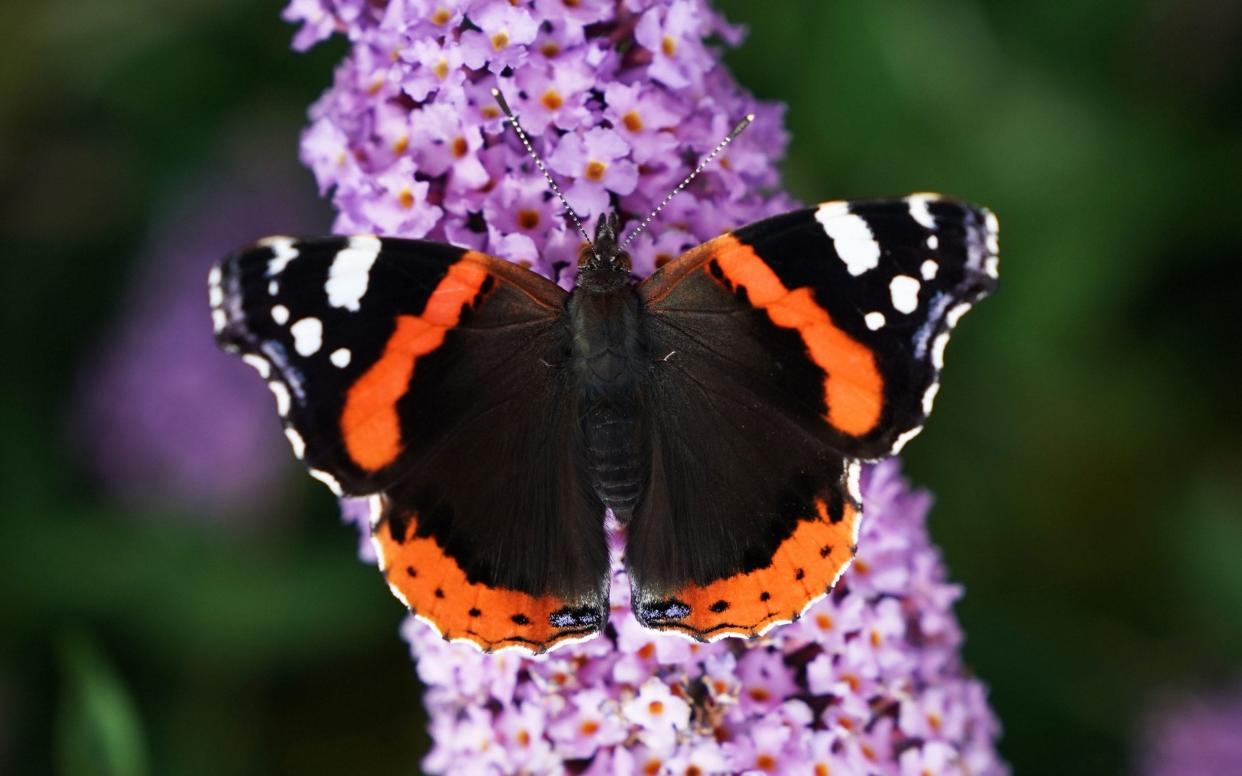Butterflies risk being wiped out if 'rewilding corridors' aren't created

Butterflies risk being wiped out if 'rewilding corridors' aren't created to help them move northwards because climate change is making their habitats too hot.
The report, drawing on research from the Intergovernmental Panel on Climate Change (IPCC) suggests climate change is causing climate zones across the northern hemisphere to move northwards, and upwards in elevation, up to 5km a year.
This rate is hundreds of times faster than species recolonisation after the last ice age. The ability of plant and animal species to survive such a rapid shift will depend partly on their ability to disperse to areas that are climatically hospitable.
Research by Rewilding Britain also shows that a massive increase in restoring and connecting species-rich habitats across at least 30 percent of Britain’s land and sea by 2030 could help save a fifth of species from climate-driven habitat loss, decline or extinction.
The charity is calling for the creation of core rewilding areas across at least five percent of Britain, with a rich mosaic of nature-friendly land and marine uses across another 25 percent of the country.
“Nature is our life support system and it’s at risk. We urgently need to kick-start a new era of rewilding and nature restoration to match the growing tsunami of climate heating and species extinction,” said Rebecca Wrigley, Rewilding Britain’s Chief Executive.
“We can only thrive if nature thrives, so we need to think big and act wild, with radical change in how we manage land and sea to halt and reverse biodiversity declines, and tackle climate breakdown.”
The report states that butterflies are having to move between 2 and 4km out of their normal habitat in the UK and North America because of climate change. It argues that therefore they need appropriate habitat between their starting point and destination so they are able to move.
It also found that the invertebrates fed on by migrating songbirds are shifting their habitat zones, meaning that when birds return from as far away as Africa, they are coming back to less food. This means songbirds are also indirectly at risk from shifting climate zones.
Trees will be hard-hit by climate change as they "can't just uproot themselves and move, but must grow to maturity and set seed," the report says. For some, this can take up to thirty years. Even then, the dispersal distance for the seeds of most temperate tree species only extends to a few tens of metres on average from the parent.
In the UK, a study of 21 different animal groups over the past four decades found that many – though not all – were moving north. Birds, butterflies, large moths and dragonflies/damselflies were shifting the northward edges of their ranges by about 20 km per decade.
The report calls for landscapes which would act as ‘natural dispersal corridors’, allowing species to move as the climate heats. They would also soak up atmospheric carbon. It argues that taking no set path, these corridors would connect, enhance, restore, and expand Britain’s most important habitats, using the core rewilding and protected areas as stepping stones for nature.
A Defra spokesperson said: “This report has highlighted that there are huge ongoing pressures on the country’s biodiversity, which is why we must continue to act to restore and enhance nature. Our 25 Year Environment Plan marked a step-change in ambition for wildlife and the natural environment, including a commitment to create, restore and better connect over 500,000 hectares of wildlife-rich habitat, alongside action to improve our protected sites as part of the Nature Recovery Network.
“We have also pledged new funding, including our £640m Nature for Climate Fund, and are bringing forward the landmark Environment Bill which sets the framework for introducing legally binding targets for the environment, including biodiversity. Nature matters, and we are committed to being world-leaders in protecting and restoring the environment for future generations.”

